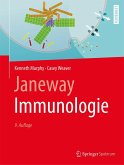This volume will provide an overview of the factors contributing to disease pathogenesis, including the recognition of discrete molecular subtypes with distinct etiology, prognosis, and treatment response. This volume will familiarize the reader with the critical signaling pathways and oncogenic drivers for HNC. It will outline the differences between HPV-positive and HPV-negative disease, and how these differences affect treatment choice and outcome. The book will emphasize developments in the past five years, including the growing understanding of the genomic and epigenomic features of the disease based on analysis of next generation sequencing (NGS) data, and timely topics such as the analysis of HNC stem cell populations, non-coding mRNAs, and inflammatory response. It will address exciting new therapeutic approaches such as the use of immunotherapies to treat HNC patients. Overall,the book will provide the reader with current understanding of the biology and treatment of the disease, and describe timely questions that will guide future research aimed at controlling and curing this disease.
Dieser Download kann aus rechtlichen Gründen nur mit Rechnungsadresse in A, B, BG, CY, CZ, D, DK, EW, E, FIN, F, GR, HR, H, IRL, I, LT, L, LR, M, NL, PL, P, R, S, SLO, SK ausgeliefert werden.









